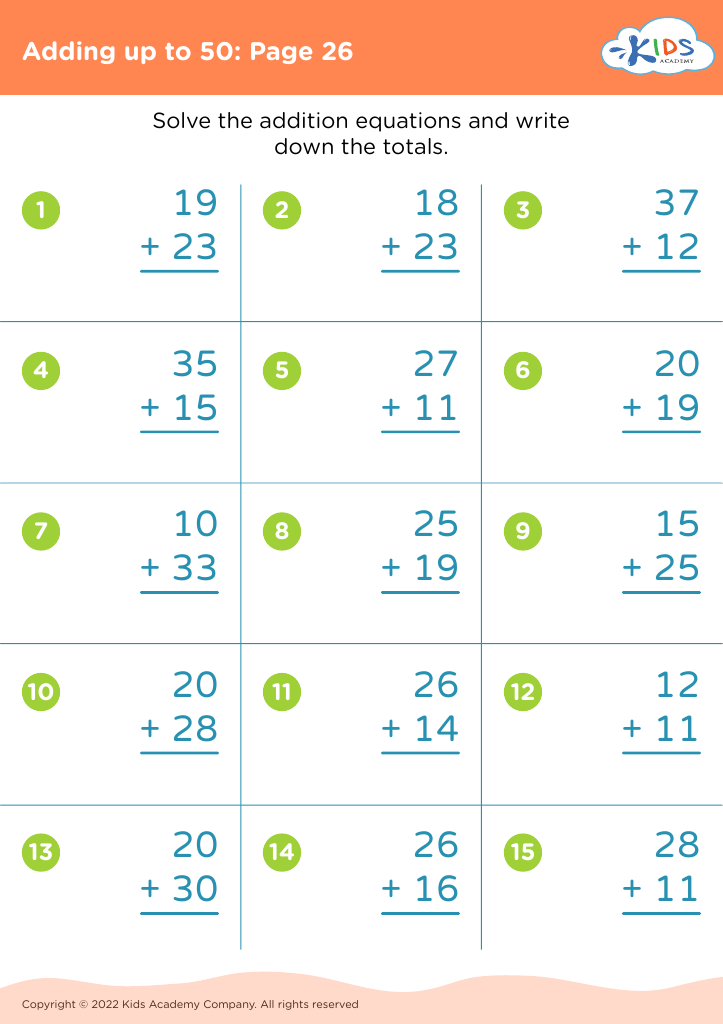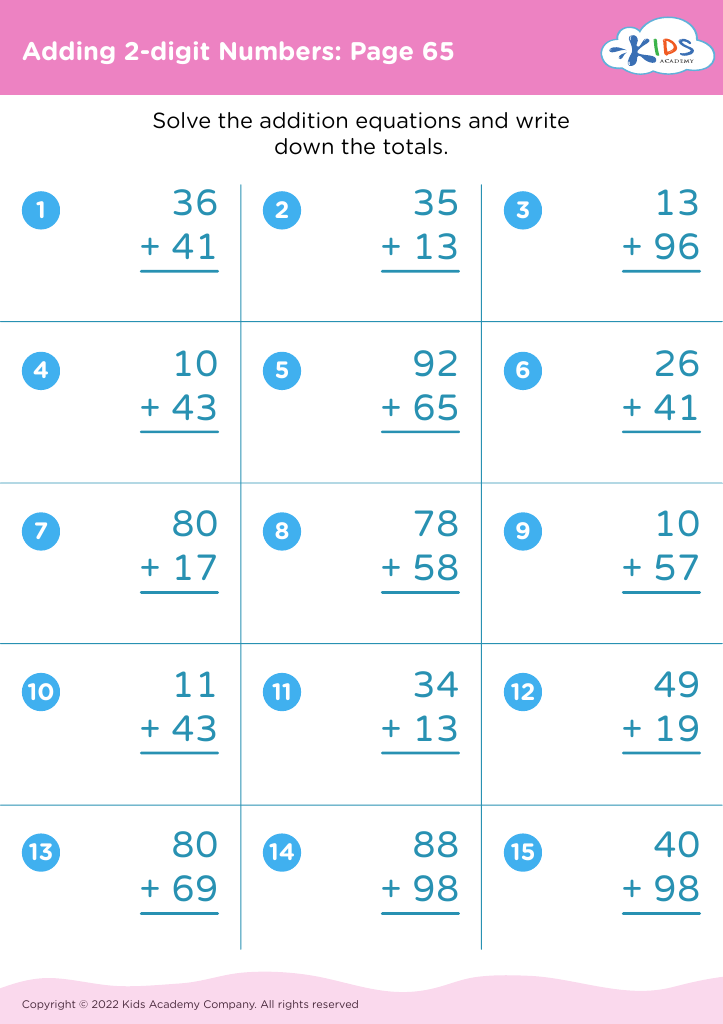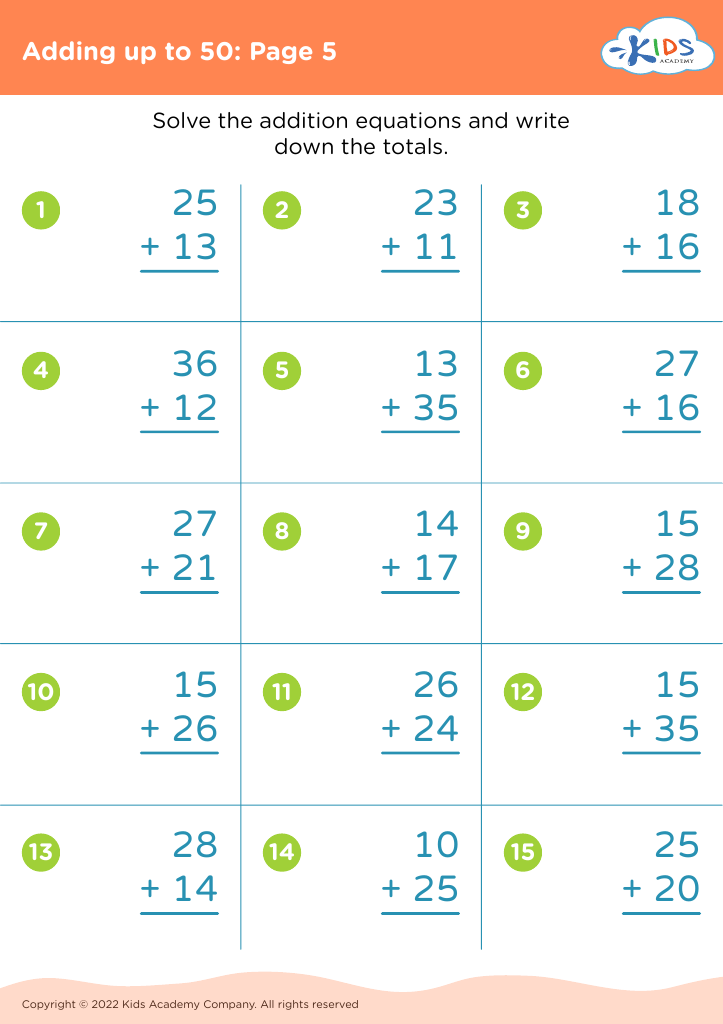Understanding adjectives Addition Worksheets for Ages 7-9
5 filtered results
-
From - To
Welcome to our "Understanding Adjectives Addition Worksheets" designed for children aged 7-9! These engaging worksheets combine the concepts of grammar and math, helping young learners grasp adjectives while honing their addition skills. Students will perform addition exercises enriched with descriptive prompts, encouraging them to think creatively and enhance their vocabulary. Each worksheet promotes interactive learning through fun activities, allowing kids to practice identifying adjectives in sentences related to math problems. Perfect for classroom use or home study, these worksheets make learning enjoyable and effective, setting the foundation for academic success in both language arts and mathematics. Start exploring today!
Understanding adjectives is crucial for children aged 7 to 9, as it significantly enhances their language skills and comprehension. During this developmental stage, children begin to express themselves more clearly and convey their thoughts creatively. Adjectives enrich their vocabulary, enabling them to describe objects, feelings, and experiences more vividly.
When parents and teachers focus on teaching adjectives, they equip children with the tools to communicate effectively, leading to improved writing and speaking abilities. For instance, instead of saying "the dog," a child can say "the playful brown dog," adding detail that engages the listener or reader. This skill is essential for academic success, as it fosters critical thinking and creativity.
Furthermore, reinforcing the use of adjectives encourages children to become more observant and expressive. It cultivates their ability to analyze and interpret texts, deepening their reading comprehension. In turn, this can lead to a greater appreciation for literature and storytelling.
Support for understanding adjectives not only aids language development but also builds confidence in communication, essential skills that children will carry into their academic and social endeavors. Therefore, prioritizing this aspect of learning should be a shared goal for both parents and teachers.






















